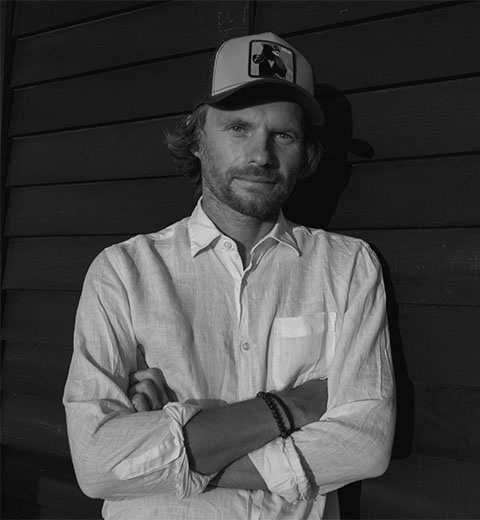Interview with Krzysztof Candrowicz, independent curator and founder of the International Festival of Photography in Lodz
The first phase of LOBA’s new selection procedure has been completed. Around 70 internationally renowned experts have each submitted three favoured series. In the next step, a shortlist will be put together from these suggestions, from which this year’s LOBA jury will then select the final winners. Finally, this year’s LOBA winner and the LOBA newcomer will be announced in September. Over the past months we have made numerous interviews with LOBA nominators. Today, we will conclude our series by introducing another nominator: Krzysztof Candrowicz, freelance curator and founder of the International Festival of Photography in Lodz
How important is the LOBA in your opinion compared to other photographic awards?
Personally, I don’t like to compare qualitative projects like festivals, museums or competitions. Each has its own characteristics, therefore inherent value. LOBA’s strength is rooted in the photographic history of the last 40 years. I’ve been following the project for years because it focuses on the relationship between man and the environment.
What is special about LOBA from your point of view?
A wide geographical range and the juxtaposition of renowned authors who have been active for years in the photography world, with newcomers. It definitely creates more opportunities and visibility for young and emerging photographers.
What, in your opinion, should particularly define the future of LOBA?
This question should be directed to the LOBA organizers. However, if it was up to me, I would put even more emphasis on awareness, responsibility and the environment. Nowadays, we need thoughtful, critical voices, not only spectacular illustrations – as, for instance, during the first decades of World Press Photo, which is also experiencing such a conscious transformation today.
“Nowadays, we need thoughtful, critical voices, not only spectacular illustrations.”
Can you give us insight into how you proceeded in selecting your proposals for LOBA?
I relied on three qualities: research, intuition and my belief in value of the project. Naturally, it has to be a person or a work that really needs and deserves more visibility.
What advantages do you see in a pre-selection by international experts?
Preselection is essential for substantive and also purely mathematical reasons. If anyone could send in their work to such a massive, worldwide contest, then perhaps we would need several hundred experts for evaluating the thousands of submissions. A visual overdose guaranteed.
How do you consider the relationship between applied photojournalism and free art work in the LOBA competition?
I think these are 20th century pigeon holes that have divided the photographic environment into completely separate groups; those centred around photojournalism, those grouped around museums, festivals and artistic photography, as well as those associated with popular and amateur photography. Today, these worlds are increasingly merging. There is less separation and labelling – the Arles festival is the best example.
What would you advise young photographers do to become visible and successful?
I think there is no prescription. In the time of democratic media, open calls, online magazines, the strength and authenticity of the work determine its visibility. Undoubtedly, participation in photography events helps, especially in these times when we lack direct contact, and a sense of collectivity and community.
How do you assess the situation of the current photographic market?
Is there a photography market? [Smile] I think it’s hard to define if there is a distinct market demand between two extreme poles: limited print sales at very exclusive fairs like Art Basel, Paris Photo or AIPAD (galleries); and the opposite reality – poorly paid assignments, fast-photojournalism, lifestyle and stock photography. Therefore, I really empathize with most of the struggling authors who are trying to find a balance between these two distant realities. I hope that museums, festivals, photography platforms and also companies like Leica can contribute more to artistic production.
What wishes and hopes do you have for the photography of the future?
More freedom, more inclusiveness, more diversity, more focus, quality and time,
more collectivity, more opportunities for authors from the global-south and, in general, more stimulating and provocative works. Definitely less struggling, less inequalities, less patriarchal and hermetic projects, less superficial and stereotypical works, and, ultimately, less photographs.
Thank you very much for your time.

Krzysztof Candrowicz
Krzysztof Candrowicz, born 1979, is a curator, researcher and art director. He is the founder and former director of the International Festival of Photography in Lodz, the Foundation of Visual Education and the Lodz Art Center. In 2015 and 2018 he was artistic director of the Triennial of Photography in Hamburg. He studied photography at the International Photography Forum in Wroclaw and graduated in Sociology of Art at the University of Lodz.
In the past years, he was a member of the jury of various art projects. Currently, he is working as a guest curator, consultant, and visiting lecturer for numerous organizations, museums, schools and festivals in Europe and worldwide. He lives in Porto and Lodz.
Portrait: © Mafalda Ruão